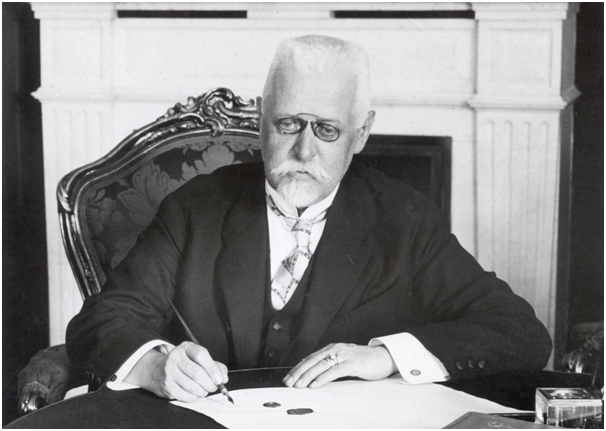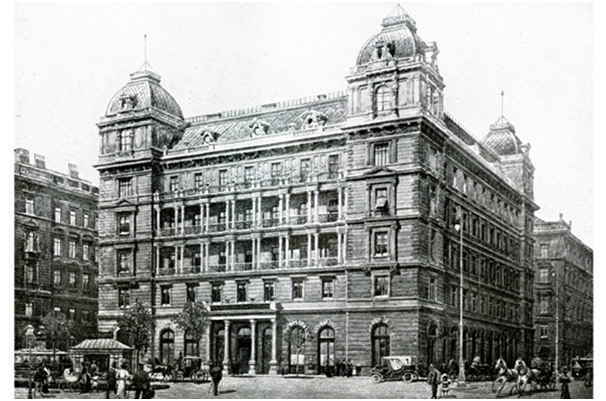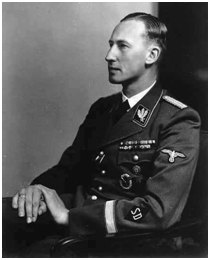Interpol is an international police organization, a primary tool in the fight against global crimes, uniting countries in a common effort to combat terrorism, human trafficking, cybercrime, and more.
Contrary to popular belief, Interpol does not investigate the most dangerous and high-profile crimes; it merely acts as a coordinator among the law enforcement agencies of member countries. The main task of the organization is to facilitate information exchange, create global databases, and support international searches.
 9
9 Today, Interpol plays a significant role, especially in the context of the hybrid war initiated by the Russian Federation against Ukraine, simultaneously serving as a platform for combating crimes and exposing abuses within the system.
Historical Background
In the wake of large-scale crimes resulting from the post-war period, there arose a genuine need for an international structure to combat crime that was increasingly taking on not just a local but also a transnational character. Europe, grappling with socio-economic difficulties, faced new challenges, including organized smuggling, human trafficking, and illegal arms trade. While criminals operated beyond the boundaries of laws, crossing the borders of individual states, law enforcement agencies remained isolated in their activities and lacked the authority to prevent and investigate such crimes.
 0
0 Thus, in 1923, Austrian politician and police chief Johann Schober proposed the idea of uniting the efforts of law enforcement agencies from different countries. As a result, that year, the first International Congress of Criminal Police was held in Vienna, where a decision was made to create an organization that would promote cooperation among the police forces of various states. This marked the beginning of the history of the International Criminal Police Commission (ICPC).
At the time of the organization's establishment, it was joined by Germany, France, Hungary, Italy, Belgium, Switzerland, the Netherlands, Denmark, and Austria (as the initiating country where the first meeting took place).
 1
1 In its early years, the organization focused on developing cooperation mechanisms based on simple principles: neutrality, mutual trust, and shared goals in combating crime. Therefore, from the outset, Interpol concentrated on creating a system that could operate outside of political or military motives.
Interpol in the Hands of the Third Reich and Reorganization
However, such neutrality did not always exist. After the annexation of Austria in 1938, the Interpol headquarters, located in Vienna, came under the control of the Third Reich. This period became one of the darkest chapters in the organization's history, as it was transformed into a tool of Nazi policy. Interpol pursued not criminals, but those whom the regime considered enemies: Jews, political opponents, and members of the resistance movement.
 2
2 The leadership of the organization fell to key figures in the Nazi apparatus. In 1940, it was headed by Reinhard Heydrich, one of the architects of the Holocaust, who moved the headquarters to Berlin.
 3
3 After his death in 1941, Interpol was led by Arthur Nebe, involved in mass murders in Belarus, and Ernst Kaltenbrunner, who became the last president of the organization during the Third Reich.
 4
4 Both were executed for war crimes after the Nuremberg Trials.
During these years, Interpol lost its neutrality, becoming a repressive instrument of a totalitarian regime.
 5
5 After World War II, Interpol resumed its activities and underwent significant changes. In 1946, the organization's headquarters was relocated from Berlin to the outskirts of Paris, symbolizing the beginning of a new chapter in its history. The organization was reorganized under Belgian leadership, and from that point, a long process of returning to the principles of neutrality and apolitical stance, as declared in its charter, began. However, the first decades after the war were challenging for Interpol due to controversial personnel decisions that raised questions about its neutrality.
In particular, in 1963, the president of Interpol became Jean Nepot, a former official of the Vichy regime in France, known for collaborating with Nazi Germany.
 6
6 In 1968, Paul Dickopf, a former SS officer and Nazi spy in Switzerland, assumed this position. Such appointments drew criticism and suspicions of political bias within the organization, especially since Interpol refused to participate in the search for Nazi criminals until the 1980s, citing a clause in its charter that prohibits interference in political processes.
Thus, Interpol's working methods changed several times, adapting to technological advancements and the increasing complexity of crimes. The era of telegraphs was replaced by electronic systems, global databases, and cyber monitoring. Consequently, Interpol ceased to limit its pursuits to ordinary robbers and expanded its efforts against cybercriminals, terrorists, and human traffickers. Furthermore, by the 1980s, most countries in the world, including those in Africa, Asia, and Latin America, had joined Interpol, transforming it from a Eurocentric organization into a global one. Today, the number of member states reaches 190.
 7
7 In 1989, the organization underwent a change in its location – the Interpol headquarters was moved from Paris to Lyon. This decision was driven by the need for a more modern infrastructure to meet the new challenges posed by the globalization of crime. Lyon offered not only a new complex for operations but also technical capabilities for implementing innovative information exchange systems, which became crucial to Interpol's activities in the late 20th century.
Structure of Interpol
The highest governing body of Interpol is the General Assembly, which convenes annually to address strategic issues and elect the organization's leadership. Ongoing matters are handled by the General Secretariat, which includes several departments: administrative, technical, police, and research. The Executive Committee, comprising the president, four vice presidents, and eight additional delegates, meets three times a year to oversee the Secretariat's work and prepare the agenda for the Assembly. National Central Bureaus (NCBs) in participating countries ensure interaction with the central office and international partners, operating under their national laws and responsible for international relations.
 8
8 The organization creates and maintains global databases that include information about criminals, stolen vehicles, missing persons, and more. The tool for international searches is the system of color-coded notices. In other words, Interpol uses various colored messages to coordinate efforts among member countries depending on the nature of the case. For example, “red” notices pertain to the search for criminals hiding from justice – a sort of international arrest warrant. “Yellow” notices are used to search for missing persons, especially in cases where there is suspicion they have left the country. If only information about the suspect's whereabouts is needed, “blue” notices are issued.
“Green” notices warn of potentially dangerous individuals who may pose a threat, while “black” notices are meant for identifying unidentified bodies. There are also more specific notices, such as “orange” for warning about public safety risks or “purple” that inform about schemes and methods used by criminals. Additionally, there is a UN Security Council notice that informs about individuals or companies under international sanctions. This system, while seemingly simpler at first glance, is a key tool for rapid response to global challenges.
Ukraine's Membership in Interpol and War
In 1992, Ukraine joined Interpol. Thus, combating organized crime, smuggling, corruption, illegal arms, and drug trafficking became part of international cooperation. Since joining, the National Central Bureau of Interpol in Ukraine has actively participated in international operations, particularly in the search for individuals hiding abroad and uncovering transnational criminal networks.
 9
9 Since 2014, the Russian Federation has systematically used Interpol as a tool in its hybrid war against Ukraine. Politically motivated requests aimed at placing Ukrainian military personnel, activists, and volunteers on wanted lists have become a common tactic for the aggressor state.
 0
0 The story of Ihor Mazur, a Ukrainian veteran of the Anti-Terrorist Operation, is a vivid example of Russia's abuses of Interpol mechanisms. In November 2019, Mazur was detained at the Polish border at Russia's request, which accused him of participating in military actions in Chechnya during the 1990s. These accusations were clearly politically motivated, as Mazur actively defended Ukraine during the war in Donbas and condemned Russia's aggression. The detention sparked significant public outcry in Ukraine, as it became evident that Russia was attempting to use Interpol to pressure Ukrainian veterans and activists.
After verification, the Polish authorities concluded that the case indeed had political motives. As a result, Mazur was released, and his case became another indication of how Russia attempts to manipulate international organizations for its purposes.
 1
1 The large-scale invasion by Russia on February 24, 2022, heightened the challenges faced by Interpol. One of the primary tasks became documenting the war crimes of Russian military personnel, gathering evidence, and coordinating investigations among states. Additionally, the organization facilitated the prevention of illegal trafficking of cultural valuables that could have been stolen during the occupation. In response to the migration crisis caused by the war, Interpol also began combating human trafficking, which intensified amid the large-scale movement of Ukrainians abroad.
__